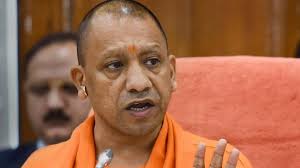World
UN, Afghan Taliban dialogue to reduce civilian casualties

United Nations: The top UN official in Afghanistan said the world body has been in touch with the Taliban in an effort to reduce civilian casualties and to make them aware of their obligations under international human rights laws.
“We think it is really important to engage all parties to the conflict on the question of civilian casualties,” Nicholas Haysom, Special Representative of the Secretary-General and Head of the United Nations Assistance Mission in Afghanistan (UNAMA), said at a news conference here Friday.
“We have more recently engaged with the Taliban.”
The UNAMA shared reports and asked the Taliban for comments in its outreach effort to the organisation, he said.
At the meetings with the Taliban that took place in Doha, he said, “We have also necessarily engaged with them on what the international human rights law framework is and what it expects from combatants.”
The UN outreach to save civilians appears to be taking place despite a UN report Thursday that said the Taliban leadership seems unwilling to enter into political negotiation “in a meaningful way”.
Although the “situation has not measurably improved” and the Taliban was responsible for the majority of the civilian casualties, according to Georgette Gagnon, UNAMA’s Director of Human Rights, the message may be
making a dent.
“We have recently seen a change in their method of
targeting,” she said.
They are “targeting more military targets, which they consider lawful, but still using tactics or means which are disproportionate or indiscriminate or killing or injuring civilians,” she added.
Where there are civilian casualties, the Taliban tries to
explain them as collateral damage.
There has also been another shift.
“With the Taliban, what we have seen is a change in their messaging,” she said.
“They now talk a lot more about their efforts to protect civilians. They have improved their so-called ‘code of conduct.'”
Gagnon said that the UNAMA has not seen an increase in attacks on schools or schools for girls.
“There have been some isolated incidents which we and UNICEF track very closely and bring to the attention of
those involved in them.”
Significantly, the Afghan Taliban, which has affiliations with its Pakistani counterpart, condemned the killing of school children in Peshawar this week.
“The intentional killing of innocent people, women and children goes against the principles of Islam and every Islamic government and movement must adhere to this
fundamental essence.” the group said in a statement.
As a result of the UN efforts, Haysom said that the insurgents seemed to be developing “sensitivity” to accusations of targeting civilians, especially children.
“When there is extensive impact (from an attack) on
civilians they refuse, decline, to acknowledge ownership.”
“That indicates that the message we are putting out has an impact, those who attack civilians will pay a political price.”
Explaining how they built up their interaction with the Taliban, Haysom said they shared reports of incidents with them and asked for their comments.
“Their initial response had been largely to reject the report and to claim that it was inaccurate,” he said.
But the UNAMA shared with the Taliban their methodology and asked them about incidents which they feel have not been reported and show them their concerns were being
accommodated.
“We have also necessarily engaged with them on what the international human rights law framework is and what it expects from combatants,” Haysom added
World
Lockdowns in China Force Urban Communities to Defy Censorship and Vent Frustration Online

Shanghai’s rich middle class is leading a wave of online dissent over the strict and prolonged lockdowns imposed in various parts of the country. Chinese internet censorship is struggling as patience is wearing thin in many urban centers, coming up with creative forms of online protests.
Social Media Posts Revealing Lockdown Tension in Shanghai
Drawn-out lockdowns are nothing new in China as authorities insist with the nation’s zero-Covid policy since the start of the pandemic. Currently over This time around, however, metropolitan areas like Shanghai are increasingly difficult to keep quiet, given that its more than 25 million residents have seen weeks of total isolation along with food shortages and many other service interruptions.
Dozens of towns and reportedly over 300 million Chinese citizens have been affected by lockdowns of different severity. As expected, urban netizens have been most outspoken over their difficulties by finding creative ways to get around state censorship and bans placed on topics, news comments and spontaneous campaigns.
Shanghai residents have been using mobile proxies and hijacking seemingly unrelated hashtags to talk about healthcare issues, delivery failures and the overall severity of their situation. The “positive energy” that the Chinese government wants to transmit during the recent prolonged series of lockdowns does not come naturally to those counting food supplies and online censors are working hard to filter words, trending topics and undesired social media sharing.
WeChat groups and message threads are under constant monitoring. Posts questioning the zero-Covid approach have been quickly deleted, including by leading Chinese health experts like Dr. Zhong Nanshan. Video footage is soon censored and protests and investigations are quickly made to disappear.
Where this has not worked, officials have exposed banners with warnings and outright threats like “watch your own mouth or face punishment”, while drones have been patrolling the city skies. Yet, if anything, this has led to further tensions and unspoken confrontation with Shanghai’s educated and affluent middle class.
Creative Online Solutions Harnessing Civic Energy
Announcements by Chinese social media that they would be publishing the IP addresses of users who “spread rumors” have not helped either. Tech industry research has shown that much of Asia’s tech-savvy population has a habit of using mobile proxies and other privacy tools, quickly finding workarounds to browse the internet freely and talk to the world about the hottest topics.
The sheer volume of forbidden posts is already a challenge for the very censorship system, experts explain. Unable to track all trending hashtags, state workers overlook topics that speak about the US, Ukraine or other popular news. Linking human rights elsewhere to their situation, Chinese online dissidents establish their informal channels and “hijack” the conversation to share personal or publicly relevant information about the Covid suppression in their town.
Sarcastic and satirical posts still dominate. Others hope to evade the censors by replacing words from famous poems or the national anthem. One thing is certain – social media, when harnessed with the right creativity, has proven its ability to mount pressure on the government in even some of the most strictly controlled tech environments like China.























